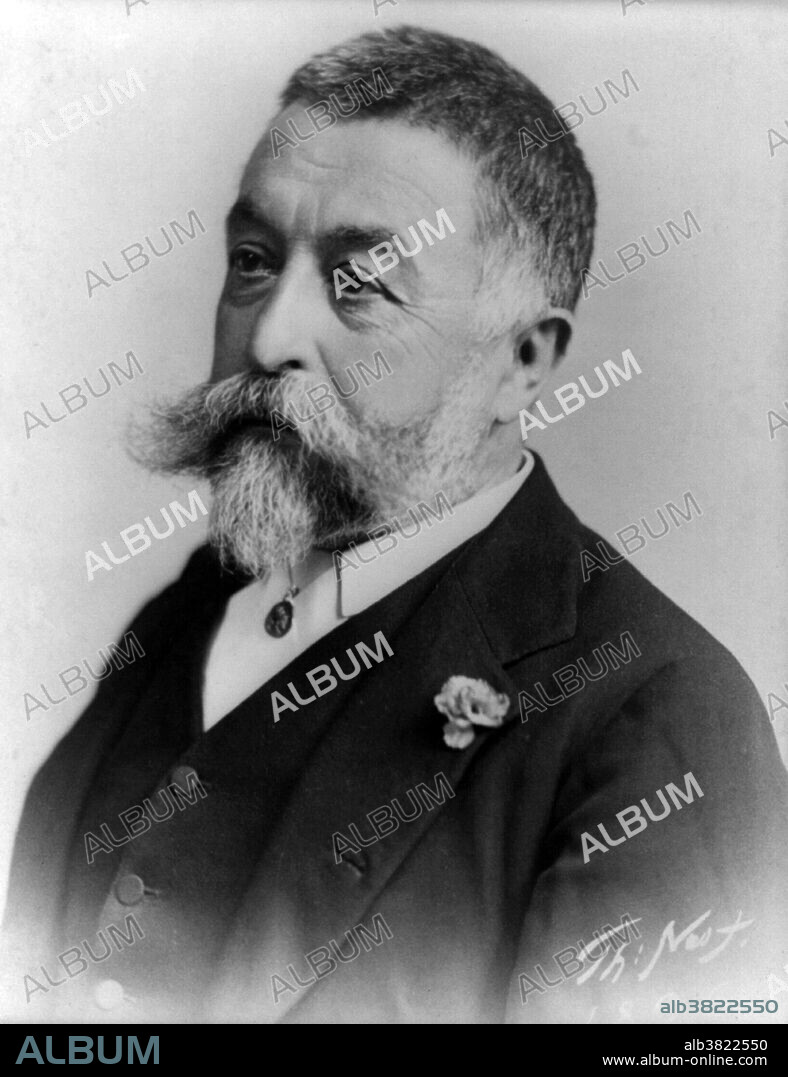alb3822550
Thomas Nast, American Editorial Cartoonist

|
Add to another lightbox |
|
Add to another lightbox |



Buy this image.
Select the use:

Title:
Thomas Nast, American Editorial Cartoonist
Caption:
Thomas Nast (September 27, 1840 - December 7, 1902) was a German-born American caricaturist and editorial cartoonist. Among his notable works were the creation of the modern version of Santa Claus and the political symbol of the elephant for the Republican Party. Nast was associated with the magazine Harper's Weekly (1859-60, 1862-86). His cartoons frequently had numerous sidebars and panels with intricate subplots to the main cartoon. A Sunday feature could provide hours of entertainment and highlight social causes. After 1870, Nast favored simpler compositions featuring a strong central image. A recurring theme in Nast's cartoons is racism and anti-Catholicism. His political cartoons supported American Indians and Chinese Americans. He advocated the abolition of slavery, opposed racial segregation, and the violence of the KKK. President Theodore Roosevelt was an admirer and offered him an appointment as the US Consul General to Ecuador. During a yellow fever outbreak, Nast remained on the job, helping diplomatic missions and businesses escape the contagion. He contracted the disease and died in 1902 at the age of 62. Photo by Frazier, 1896.
Credit:
Album / LOC/Science Source
Releases:
Model: No - Property: No
Rights questions?
Rights questions?
Image size:
3465 x 4500 px | 44.6 MB
Print size:
29.3 x 38.1 cm | 11.6 x 15.0 in (300 dpi)
Keywords:
1890S • 1896 • 19TH CENTURY • AMERICA • AMERICAN • BW • CARICATURIST • CARTOONIST • CELEBRITIES • CELEBRITY • EDITORIAL CARTOONIST • FAMOUS PEOPLE • FAMOUS • FATHER OF THE AMERICAN CARTOON • FIGURE • GERMAN-BORN • HARPER'S WEEKLY • HARPERS WEEKLY • HISTORIC • HISTORICAL • HISTORY • ILLUSTRATOR • IMPORTANT • MALE • MEN • NAST • NOTABLE • PEOPLE • PERSON • PERSONALITIES MAN • PERSONALITY • PHOTO • PHOTOGRAPH • THOMAS NAST • UNITED STATES • US • USA • WELL-KNOWN
 Pinterest
Pinterest Twitter
Twitter Facebook
Facebook Copy link
Copy link Email
Email
